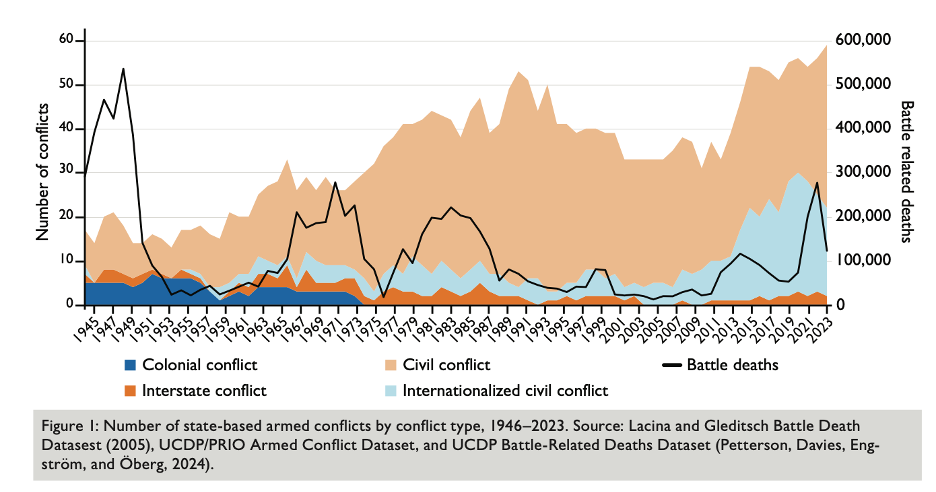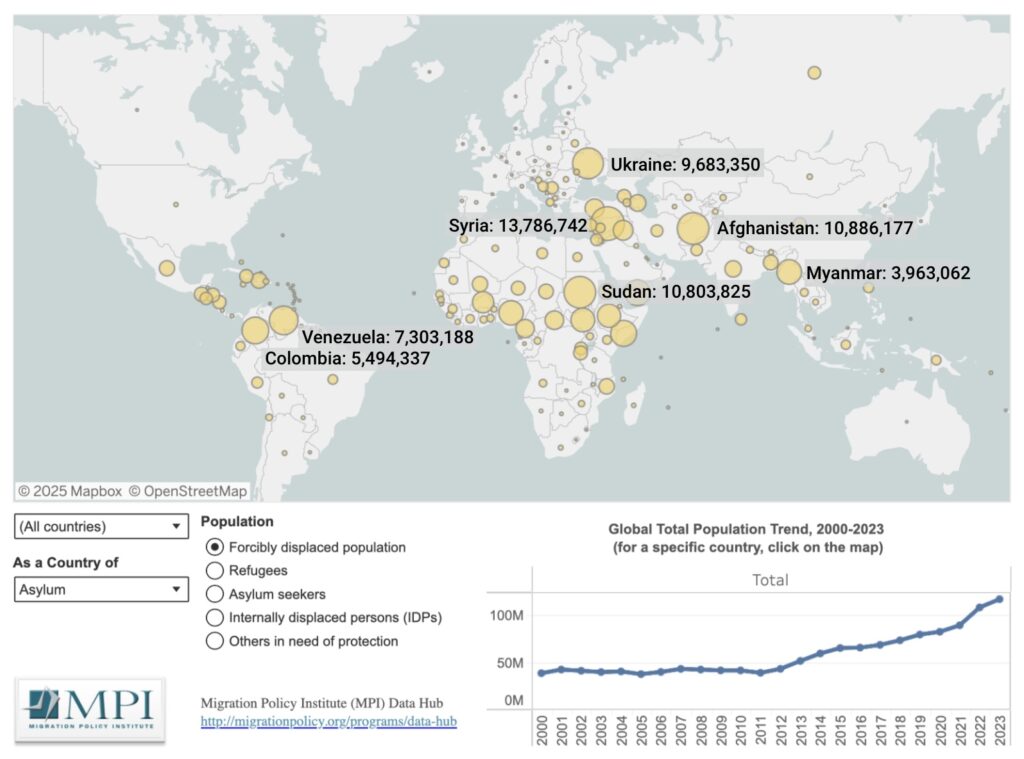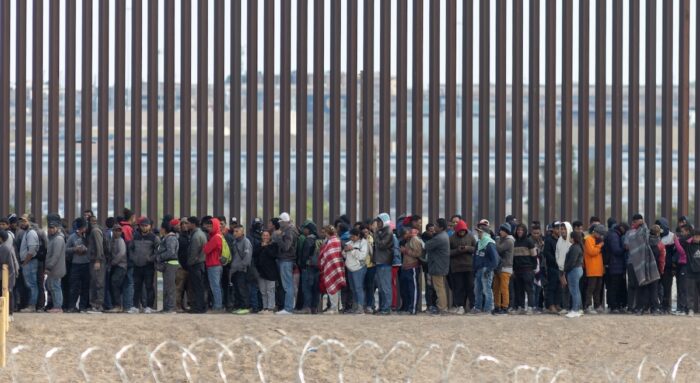The World Refugee & Migration Council, made up of 33 global leaders from all regions of the world, offers bold, strategic thinking on the international system of refugee protection in light of global challenges.
We are issuing this statement because the challenges facing the system are unprecedented and far-reaching. The international refugee and migration regime — one of the critical pillars of the post-war international rules-based order — is crumbling before our very eyes with global implications.
Those demolishing the regime are the very same democratic states who built it out of the ashes of the Second World War. Their actions are being driven by right wing populism, public sentiment that is hostile to those who are poor and in search of a better life, and an unwillingness on the part of more moderate voices to defend key democratic and human rights norms and principles.
We welcome United States-born Pope Leo XIV’s first address to world diplomats stressing the importance of respecting the dignity of migrants, picking up the mantra of his predecessor Pope Francis in calling for passion and solidarity with those seeking a better life.
His statement is especially important in light of recent decisions made by many democratic countries — see Figure 1 — that are undermining the international refugee and migration regime.
Figure 1: Decisions Undermining the International Refugee and Migration Regime
- US to accept white South African refugees while other programs remain paused
- Trump shuts down US-Mexico border for asylum seekers, leaving migrants in limbo
- U.S. Foreign Aid Cuts Include Up to $2.3 Billion for Migration Management and Displacement Programs
- Canada is pausing private refugee sponsorship applications until 2026
- Germany halts UN refugee resettlement programme
- Mexico’s Sheinbaum Says Unilateral U.S. Tariffs Risk Fueling Illegal Migration
- UK and other European states suspend Syrians’ asylum applications
- UNHCR: Funding cuts affect nearly 13 million refugees
- Trump administration pulling legal status of migrants
- US asylum seekers in despair after Trump cancels CBP One app: ‘Start from zero again’
- US deports hundreds of immigrants in spite of court ruling
- Pakistan plans to expel 3 million Afghan refugees this year
- UN and partners seek $934.5m for life-saving aid to 1.5 million Rohingya refugees and their hosts in Bangladesh
- Angered by mass layoffs, UN migration agency staff demand member states step in
- Trump ‘Planning to revoke legal status of 240,00 Ukrainian refugees’
Cavalier and ill-considered funding cuts are already impacting key institutions, including the UN Refugee Agency (UNHCR), which may have to dismiss a major portion of its total workforce, 6,000 or more people, the World Food Programme and the UN Migration Agency (IOM).
Restrictive policies by European and North American countries, as well as by Australian and Asian governments, have steadily eroded the fundamental human right of people to seek asylum when they face persecution in their home countries. And other countries are following suit, as witnessed by increased Latin American restrictions on entry of Venezuelan refugees, forced returns of Afghan refugees from Pakistan, and increasing xenophobia in South Africa.
The result is that the international refugee system is today being undermined by democratic states — the very states that established the system 75 years ago through binding international law under the 1951 Refugee Convention.
Decisions to end asylum, deport migrants, and pressure other governments by imposing economy-destroying tariffs not only have consequences for the countries involved — and the people seeking safety in those countries — but also for the collective system to ensure protection and global order.
The erosion of the refugee regime has profound implications for global security and order. Geopolitical instability and financial chaos lead to hunger and desperation which can provoke conflicts and drive mass migration. While efforts to create more safe migration pathways seems to have fallen out of favor in the United States and other countries, the need for immigration to meet domestic labor demands, including for re-shoring of manufacturing has never been greater.
We are alarmed at the declining commitment of governments in the global north to multilateral institutions, which have served as the bedrock of stability even as we recognize the need for transformational change to make our global system more democratic and efficient. As military spending has increased and the number of conflicts around the world is on the rise — see Figure 2 — financial support for the multilateral system to end and prevent wars and help the victims of those wars is falling.
Total global military expenditure reached $2.443 billion in 2023, an increase of 6.8 per cent in real terms from 2022. This was the steepest year-on-year increase since 2009. The 10 largest spenders in 2023 — led by the United States, China and Russia — all increased their military spending, according to new data on global military spending published by the Stockholm International Peace Research Institute (SIPRI), available at www.sipri.org.
Figure 2: Global Trends in State-Based Conflict

Our Council urges the following actions:
- We call on the Human Security Network to urge the UN Secretary-General to convene an urgent meeting of interested state parties and civil society groups to address critical funding shortfalls for UNHCR and IOM and identify new funding mechanisms, including assessed contributions to help fill an ever-growing funding gap. This meeting should also consider bold power-shifting action to transform multilateral institutions to become less top-down and more inclusive of civil society and refugee-led organizations.
- We ask UNHCR and civil society refugee advocates to establish a review mechanism to call out states that are not adhering to their convention obligations and recommend measures to rectify the situation.
- We call on member states to establish an informal coalition of deeply concerned states and a global action network of civil society partners to discuss and identify ways to support and strengthen international and especially the regional regimes on refugees and migration.
- We urge existing regional and global women and youth leaders’ networks to build a broader civil society global action network for the forcibly displaced.
- We ask global academic networks on refugees and migrants, working with inter-governmental and non-governmental organizations to create an Intergovernmental Panel on Refugees & Displaced Persons to address the combined challenges of climate change, disease outbreaks, and widespread human rights violations of refugees and migrants to complement the work of the Intergovernmental Panel on Climate Change (IPCC).
- We urge donor states to reverse de-funding and draconian restrictions placed on UNRWA, which has provided essential services to Palestinians for decades, as our Chairs have urged previously.
Five years ago, recognizing that the existing refugee protection system was deeply flawed, the Council issued a Call to Action for Transforming the Global Refugee System, suggesting that bold changes were needed. Today even bolder actions are needed.
Since then, restrictive policies have further limited asylum, new large-scale displacement crises have emerged in Ukraine, the Sudan, Gaza, DRC, and many other places, and the number of people living in protracted displacement has skyrocketed (see Figure 3).
Figure 3: Forcibly Displaced Populations by Country of Asylum, 2023

Today individuals seeking protection are hard-pressed even to be able to reach the territory of a country to make their claim for protection. The actions of the second Trump administration, coming after a decade of ever more creative efforts by developed countries to evade their obligations under the 1951 Refugee Convention, may well signal the system’s collapse. Imperfect though it is, that system has saved millions of lives and strengthened global security for a very long time. We need to build on the existing system and introduce new ways of working that correspond to the challenges of this time.
The answer is not to end asylum. Just as a person displaced in a matter of hours by conflict can find themselves living in displacement for decades, the destruction of the global refugee system is occurring quickly, but creating a new system is likely to take years. We must act now.
The World Refugee & Migration Council (wrmcouncil.org) offers bold strategic thinking and proposes concrete actions for how the international community can comprehensively respond to refugees and the forcibly displaced through the principles of international cooperation and responsibility sharing. Chaired by former Canadian Foreign Minister Lloyd Axworthy, Council members include leaders, practitioners and innovators from developing and developed countries across the globe.
